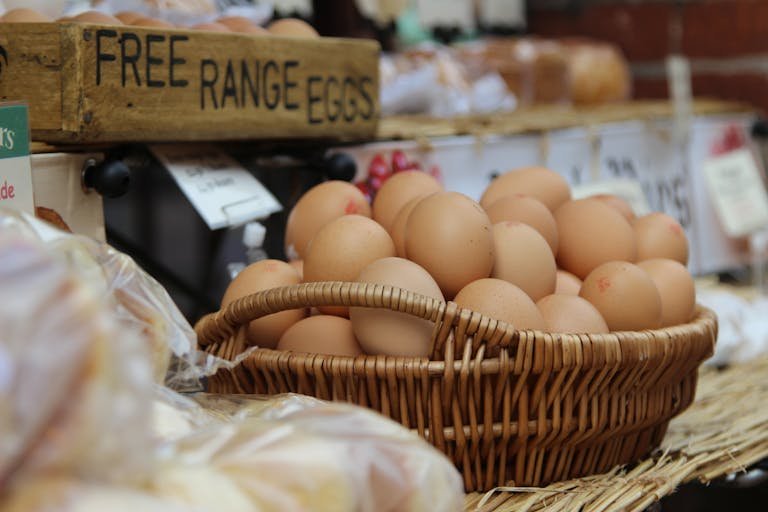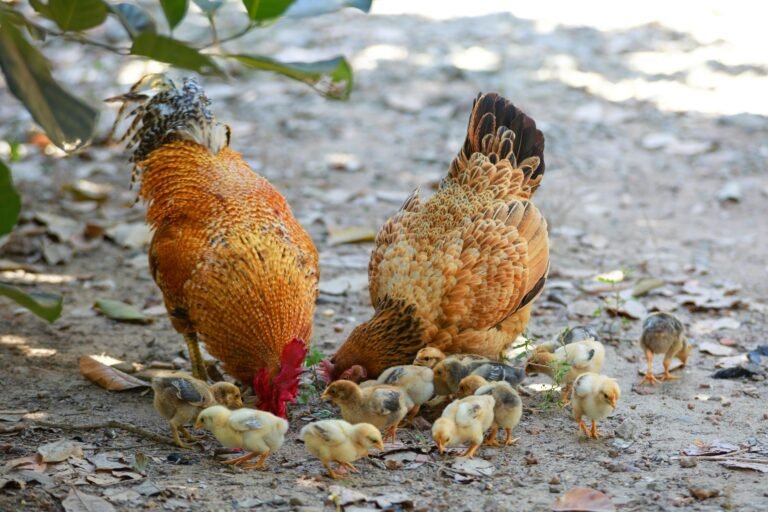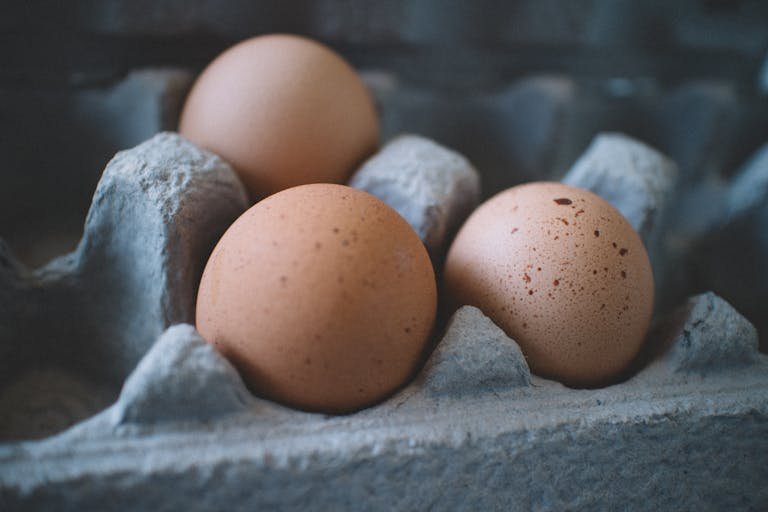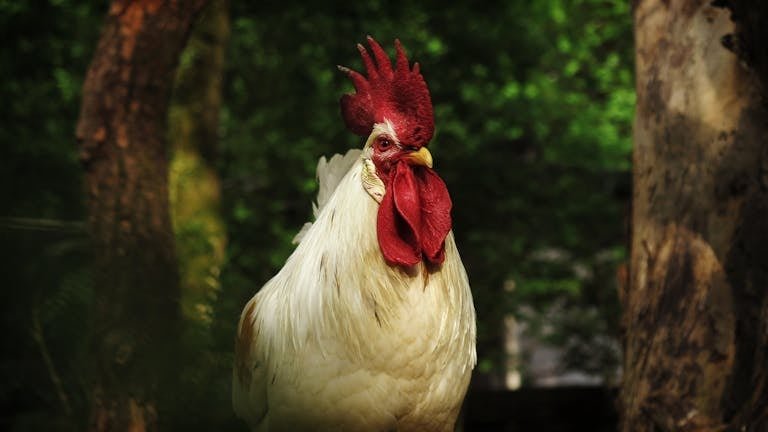Is Garlic Good for Chickens? 🐓🧄
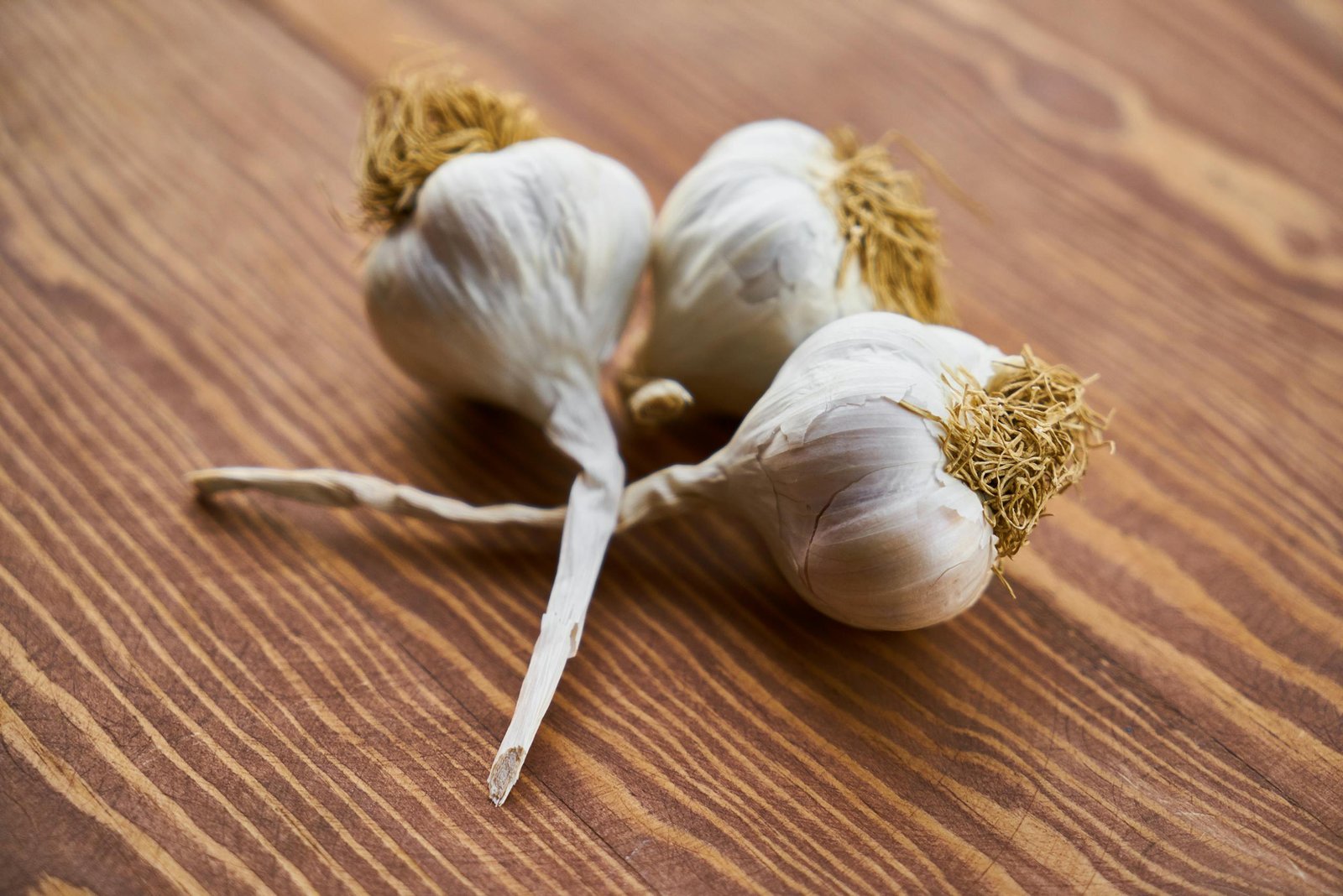
Garlic is a natural remedy that has been cherished for centuries due to its medicinal and culinary benefits. When it comes to chickens, garlic can be a powerful tool in promoting their health and well-being. Whether you are a seasoned poultry keeper or just starting out, incorporating garlic into your chickens’ diet could have numerous benefits that may surprise you.
In this blog, I will dive deep into Is Garlic Good for Chickens? and why garlic is a beneficial addition to your flock’s diet. You will discover its health-enhancing properties, how to properly introduce it, and the potential risks to keep an eye on.
Garlic
Garlic is a versatile herb that has been used for centuries in traditional medicine and culinary applications. But did you know that garlic is also an excellent addition to your chickens’ diet? When used correctly, garlic can offer a natural boost to your chickens’ health, supporting everything from immune function to egg quality. Let’s dive into the many benefits garlic has to offer for your flock.
Benefits of Garlic for Chickens
Garlic has several health advantages for chickens. It not only boosts the immune system but also helps in respiratory health, acts as a natural antibiotic, and even improves egg quality. Here’s a detailed look at the benefits:

1. Immune System Boost
Garlic contains a compound called allicin, which is well-known for its antibacterial, antiviral, and antifungal properties. This compound helps to strengthen your chickens’ immune systems, making them more resistant to common poultry illnesses like respiratory infections and digestive disorders.
- Why this matters: A strong immune system means fewer infections and healthier chickens overall. By introducing garlic to their diet, you’re giving your flock a natural defense against various diseases.
- How garlic helps: Allicin in garlic acts as an immune stimulant. It helps fight off bacteria and viruses, reducing the chances of your chickens falling ill. For example, chickens are prone to diseases like coccidiosis and bronchitis, but garlic’s antimicrobial properties can mitigate these risks.
2. Natural Antibiotic
One of the biggest advantages of garlic is its ability to act as a natural antibiotic. It can help combat infections, thus reducing the need for conventional medications, which might have unwanted side effects.
- What does it do: Garlic contains sulfur compounds that have powerful antimicrobial effects. These compounds can help fight off harmful bacteria, keeping your chickens healthier.
- Antibiotic benefits without drawbacks: The use of synthetic antibiotics can sometimes lead to antibiotic resistance in chickens. However, garlic offers a natural alternative, allowing you to treat infections without contributing to this growing problem.
3. Respiratory Health
Respiratory issues are common in chickens, especially during the colder months or in poorly ventilated coops. Garlic helps maintain respiratory health by reducing inflammation and mucus production, which can be critical for chickens prone to respiratory problems.
- Why garlic helps: Garlic’s anti-inflammatory properties help reduce the swelling of airways, making it easier for your chickens to breathe. It can also thin out mucus, making it easier for them to clear their respiratory tracts.
- Prevention is better than cure: If you notice your chickens sneezing, coughing, or breathing heavily, introducing garlic may help reduce the severity of symptoms or prevent them altogether.
4. Improved Egg Quality
There is evidence to suggest that garlic can enhance the quality of eggs. Some poultry keepers believe that it can lead to stronger eggshells and richer yolks, which not only benefits your chickens but also improves the quality of eggs you collect.
- Why this matters: Healthier hens typically lay better eggs. With the inclusion of garlic in their diet, you might notice thicker eggshells and a more vibrant yolk color.
- Enhanced nutrition: Garlic’s antioxidants and sulfur compounds can enhance overall egg production, potentially increasing the nutritional value of the eggs laid by your chickens.
5. Pest Deterrent
Garlic’s strong odor is not only good for flavoring meals but also acts as a pest deterrent. It can help to keep mites, lice, and other pests away from your chickens and their coop.
- How it works: The sulfur in garlic creates a smell that is unattractive to parasites, helping to prevent infestations. Mites and lice are common nuisances in chicken coops, but garlic can naturally help control their numbers.
- Long-term protection: Using garlic regularly can ensure that pests stay away from your chickens, keeping your flock more comfortable and healthy without the need for harsh chemicals or pest control products.
How to Incorporate Garlic into Your Chickens’ Diet
Now that you understand the numerous benefits garlic can provide, let me guide you on how to introduce it into your chickens’ diet. There are various ways to offer garlic to your flock, and it’s important to choose a method that works best for you and your chickens.
1. Crushed Garlic in Drinking Water
One of the easiest ways to introduce garlic to your chickens is by adding crushed garlic to their drinking water. Start small, and monitor how your chickens react to it.
- How to do it: Simply crush a few garlic cloves and add them to your chickens’ water supply. Begin with one or two cloves per gallon of water and adjust as needed. Let the garlic sit in the water for a couple of hours before allowing your chickens to drink it.
- Benefits: This method ensures that all chickens in the flock get an equal share of garlic’s benefits. Plus, it’s easy to prepare and administer on a daily basis.
2. Garlic Powder Over Feed
Another option is to use garlic powder and sprinkle it over your chickens’ feed. This method is convenient and ensures that they ingest garlic consistently.
- How to do it: Sprinkle a light layer of garlic powder over their usual feed. Start with a small amount, around half a teaspoon per pound of feed, and adjust according to your chickens’ tolerance.
- Benefits: Using garlic powder ensures that your chickens get the necessary compounds found in garlic without needing to deal with the fresh garlic smell in their water. This method also allows you to monitor their garlic intake more easily.
3. Garlic-Infused Treats
You can also make homemade garlic-infused treats for your chickens. This not only provides them with the health benefits of garlic but also adds a fun treat to their day.
- How to make it: Use ingredients like garlic-flavored bread, crackers, or homemade treats infused with garlic. Be sure not to overdo it, though, as too much garlic at once can be overwhelming for their digestive system.
- Benefits: Garlic-infused treats are an easy and enjoyable way for chickens to consume garlic. This method can also be used as an occasional treat to keep their diets varied and interesting.
Important Notes and Precautions
While garlic is generally safe for chickens, it’s crucial to introduce it gradually into their diet. Like any new supplement, too much garlic too quickly can cause digestive issues. Let me break down some key points to consider when adding garlic to your chickens’ diet.
1. Start Slowly
When introducing garlic to your flock, start with small amounts. Whether you’re using crushed garlic in water or sprinkling garlic powder over their feed, you should begin with a low dosage and gradually increase it.
- Why it matters: Chickens’ digestive systems are sensitive, and too much garlic can lead to diarrhea or other digestive issues. By introducing it slowly, you allow your chickens’ bodies to adjust without overwhelming them.
2. Monitor for Adverse Reactions
Keep an eye on your chickens after you introduce garlic to their diet. Watch for any signs of adverse reactions, such as diarrhea, decreased appetite, or changes in behavior.
- What to look for: If you notice your chickens showing any signs of discomfort or illness after consuming garlic, stop feeding it immediately and consult a veterinarian if necessary.
3. Consult a Veterinarian
If you are unsure about how much garlic to give your chickens or if you notice any health issues, it’s always a good idea to consult with a poultry veterinarian. They can guide you on proper dosage and whether garlic is appropriate for your specific flock.
Final Thoughts
Garlic can be an excellent addition to your chickens’ diet when used correctly. From boosting their immune system to improving egg quality and deterring pests, this natural herb provides numerous benefits without the need for synthetic additives or chemicals. However, as with any supplement, it’s important to introduce it slowly and monitor your chickens for any negative reactions. By doing so, you can ensure your flock reaps the full health benefits that garlic has to offer.
Incorporating garlic into your chickens’ diet is a simple, effective, and natural way to support their overall health. Whether you choose to add it to their water, sprinkle it over their feed, or offer it in treats, you’ll be contributing to a happier and healthier flock!

